In an interview with Mehr News, Soraya Sepahpour-Ulrich believes resistance to cultural imperialism as mentioned in Ayatollah Khamenei’s letter to the youth in western countries is tantamount to independence from modern colonialism.
What is the significance of this letter in terms of time of publication?
The timing is significant as once again the Muslims are being “re-victimized.” I believe that all Muslims are victims of terrorism yet they are being re-victimized by laying the terrorist actions on “Islamic radicals” thereby making the Muslims collectively responsible for terrorism. This exasperates Islamophobia, prejudice, and dehumanizes them in order to justify assault on Muslim-populated countries. All the pain and tears shed for victims would be for naught if one fails to understand the roots of the problem and neglects to find a solution.
What's your take on the topics addressed in the letter and what is the main message of it?
The letter is very rich in content and not easy to summarize. In situations such as the Paris attack and the media/politicians assault on a given group of people (here Muslims), it may become a matter of emotional survival for a young person say in Paris to not only disassociate himself or herself from Islam, but he or she may even want to participate in the blame game in order to feel part of the society and not the ‘other’ that has been re-victimized. In a sense, abandoning one’s identify to become part of the crowd is an easy way out for a Muslim in the West to deal with the current anti-Muslim sentiments being promoted. This is probably more so for a youth as they are always ‘subjects of interest’ by Western societies. I believe in this sense, Mr. Khamenei is advising the youth to remain steadfast in their beliefs and to share the true essence of Islam to combat the false narrative that is being projected.
Further, the message drives home the fact that one cannot differentiate between victims based on their religion and nationality. Victims should not be subject to double standards and hypocrisy. While the world is in shock and mourning over the loss of innocent lives in Paris, victims of Western sponsored terrorism in other parts of the world remain faceless and nameless. This reality has to be acknowledged and shared in order to make room for proper dialogue and elimination of terrorism.
Perhaps the other message that stood out for me was Mr. Khamenei’s reference to cultural imperialism and its rejection of it. Cultural imperialism is essential to the control of a society/country and resistance to it is tantamount to independence.
How much is the public in west aware of the bitter facts mentioned in the letter that west and its allies are supporting terrorism?
Regrettably, the public in the West is woefully ignorant of reality and for the most part, they have lost the ability to think critically. Their politicians have defined the term ‘terrorism’ for them. In the mind of the average Westerner, when a Muslim commits an act of violence, it is terrorism but when Western states commit terrorism or sponsor such terrorism, they are either fighting terrorism, or promoting ‘human rights’ and ‘democracy’. That said, the awareness is on the rise.
How do you see the situation in Europe and the threat they are feeling in west?
The average European is also a victim of their political elite and their actions past and present. Their fear is real to them. What direction this fear takes them may well prove to be a turning point in humanity’s modern history. Whether they will fathom the pain and suffering of the wronged, the victim, or will they allow their fear to turn into hatred and more oppression remains to be seen. This factor is crucial to Mr. Khamenei’s message in encouraging the youth to build awareness and understanding and to eliminate double standards.
Being an expert on public diplomacy in which culture is a key player, what's your comment on the backgrounds, current situation and future of cultural relations between Muslim world and west? How should the future relations be?
Regrettably religion has become a political tool. It has become imperative for the West to demonize Islam in order to fulfill their ambitions of domination and expansion. The latest trend started after the Cold War. As I wrote in an article in 2008 entitled: Terror Most Imperial: The Neo-Conservatives & "Islamofascism”, the end of the Cold War left Israel in an awkward place. According to The Jerusalem Report, in 1991, the idea that radical Islam would replace communism had taken seed among the Israeli right. The basis of the idea was founded on the neoconservatives fear that with the demise of the Soviet Union, and the splintering of the America’s right wing faction, there would no longer be an unconditional support for a US-Israel alliance. Through the media, artistic venues and universities, Islam was presented as a scapegoat.
Although there is controversy surrounding the current presidential candidates in America with regard to their derogatory remarks about Muslims, 2008 Republican candidates were worse! In fact, Mitt Romney raised eyebrows when he suggested that mosques be wire-tapped. The media did not give it the attention it deserved. The hostilities have been going on for a long time and they run deep.
Having said that, this is an interdependent world. It is hard to imagine ignoring 1.57 billion Muslim souls or for Muslims to ignore the West. It is imperative to counter the propaganda with facts. Each one of us, regardless of race, religion, or nationality has a duty to speak the truth and bring to light facts. At the end of the day, it is far easier to live in peace and harmony than the perpetual state of warfare that the Western political elite have opted for.
Soraya Sepahpour-Ulrich is an independent researcher and writer with a focus on US foreign policy.
Interview by Hamidreza Gholamzadeh



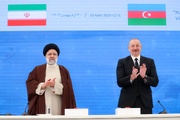
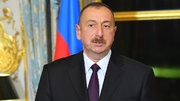
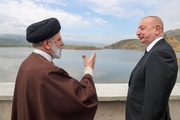
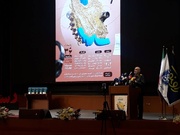
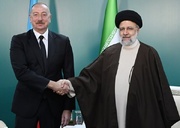
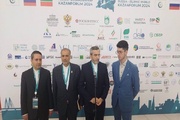
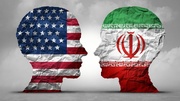

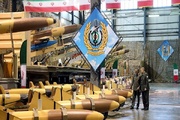
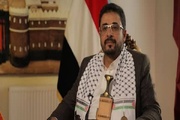
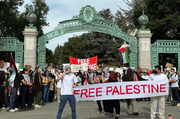
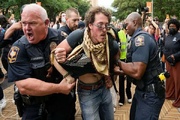
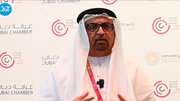
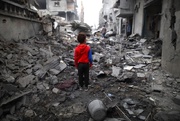
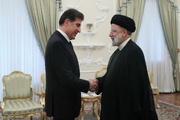
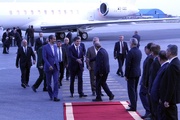
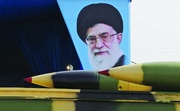



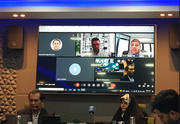
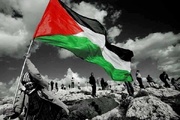
Your Comment